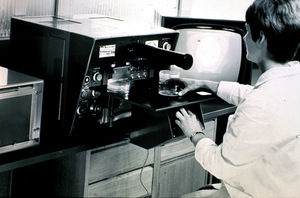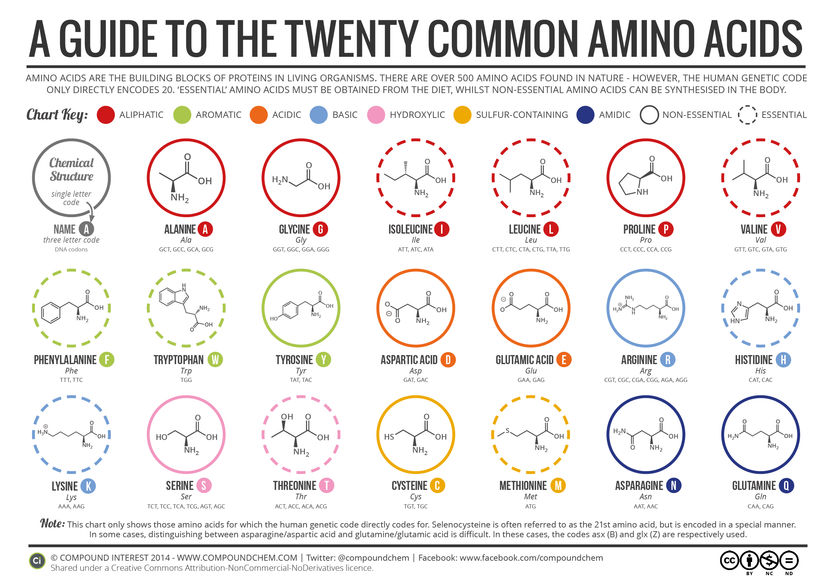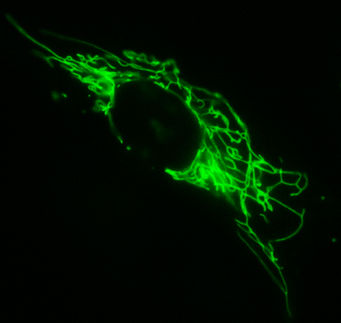Nanoparticle drug reverses Parkinson's-like symptoms in rats
As baby boomers age, the number of people diagnosed with Parkinson's disease is expected to increase. Patients who develop this disease usually start experiencing symptoms around age 60 or older. Currently, there's no cure, but scientists are reporting a novel approach that reversed Parkinson's-like symptoms in rats. Their results, published in the journal ACS Nano, could one day lead to a new therapy for human patients.
Rajnish Kumar Chaturvedi, Kavita Seth, Kailash Chand Gupta and colleagues from the CSIR-Indian Institute of Toxicology Research note that among other issues, people with Parkinson's lack dopamine in the brain. Dopamine is a chemical messenger that helps nerve cells communicate with each other and is involved in normal body movements. Reduced levels cause the shaking and mobility problems associated with Parkinson's. Symptoms can be relieved in animal models of the disease by infusing the compound into their brains. But researchers haven't yet figured out how to safely deliver dopamine directly to the human brain, which is protected by something called the blood-brain barrier that keeps out pathogens, as well as many medicines. Chaturvedi and Gupta's team wanted to find a way to overcome this challenge.
The researchers packaged dopamine in biodegradable nanoparticles that have been used to deliver other therapeutic drugs to the brain. The resulting nanoparticles successfully crossed the blood-brain barrier in rats, released its dopamine payload over several days and reversed the rodents' movement problems without causing side effects.
Original publication
"Trans-Blood Brain Barrier Delivery of Dopamine Loaded Nanoparticles Reverses Functional Deficits in Parkinsonian Rats"; ACS Nano 2015.
Most read news
Original publication
"Trans-Blood Brain Barrier Delivery of Dopamine Loaded Nanoparticles Reverses Functional Deficits in Parkinsonian Rats"; ACS Nano 2015.
Organizations
Other news from the department science
These products might interest you

Eclipse by Wyatt Technology
FFF-MALS system for separation and characterization of macromolecules and nanoparticles
The latest and most innovative FFF system designed for highest usability, robustness and data quality

DynaPro Plate Reader III by Wyatt Technology
Screening of biopharmaceuticals and proteins with high-throughput dynamic light scattering (DLS)
Efficiently characterize your sample quality and stability from lead discovery to quality control

Get the life science industry in your inbox
By submitting this form you agree that LUMITOS AG will send you the newsletter(s) selected above by email. Your data will not be passed on to third parties. Your data will be stored and processed in accordance with our data protection regulations. LUMITOS may contact you by email for the purpose of advertising or market and opinion surveys. You can revoke your consent at any time without giving reasons to LUMITOS AG, Ernst-Augustin-Str. 2, 12489 Berlin, Germany or by e-mail at revoke@lumitos.com with effect for the future. In addition, each email contains a link to unsubscribe from the corresponding newsletter.
More news from our other portals
Last viewed contents

50 years of image analysis - A room full of electronics - from QTM A to LAS 4.2
TxCell achieves positive results for Col-Treg in a model of autoimmune uveitis
Antisoma initiates phase IIb trial of AS1411 in acute myeloid leukaemia
ITI Life Sciences Seeks to Fund Innovative R&D Programme in Synthetic Biology, focusing on Gene & Genome Synthesis and Assembly
GE Healthcare and BAC start collaboration in biopharmaceutical purification
CuraGen and TopoTarget Initiate Phase Ib Clinical Trial with PXD101 for Advanced Colorectal Cancer - Proof-of-Concept Trial Evaluating PXD101 Combination Therapy with 5- fluorouracil for Advanced Solid Tumors and Colorectal Cancer
Vernalis extends cancer research collaboration with Novartis Institutes for BioMedical Research - Joint research and development programme on Hsp90, a target implicated in a number of different cancers - Vernalis to receive a $1.5 million signature fee - Novartis to make an investment in new Vernalis shares of approximately ?5 million
Kiadis Pharma receives two orphan drug designations for Reviroc from the FDA























































